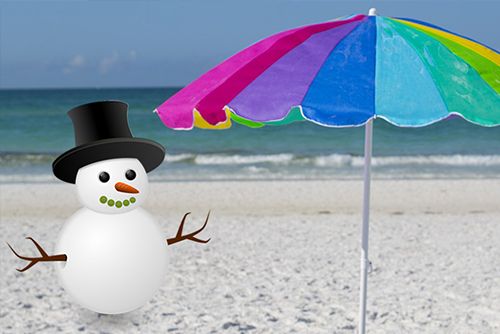Canadian Snowbirds in Winter 2020-21

Much remains uncertain during COVID-19 for the many Canadians who hope to escape the frozen north this winter. Many popular winter destinations have struggled to contain their COVID-19 outbreaks contrary to many parts of Canada, which have been more effective at reducing infection rates.
Concerns such as:
- What happens if border restrictions don’t ease by fall?
- What’s going on with travel insurance?
- What’s the COVID-19 situation in various southern climes?
With so much uncertainty swirling, most snowbirds are taking a “wait and see” approach to their plans for the season. Therefore, snowbirds have a host of health concerns to consider in deciding whether to migrate south this winter.
Snowbirds tend to be older, so they’re more likely to have underlying health conditions that put them at greater risk of COVID-19 complications.
If you decide to travel
Snowbirds need to decide whether they should be at home where they are potentially near support and family and a healthcare system that they know and can depend on. Snowbirds must consider the perils of relying on a foreign healthcare system. Some jurisdictions may not have the medical infrastructure to treat an influx of international patients, which could pose a risk to travellers and local populations as a second coronavirus wave hits.
A significant share of snowbirds drives across the border each year, so the partial closure of the U.S.-Canada land border has proved to be a powerful hurdle for many people. Among those most affected by the travel restrictions are people who lack permanent winter housing in Canada, instead opting to live in summer cottages or mobile homes.
Snowbirds should familiarize themselves with the Canadian government’s travel advisories, public health measures at their intended destination and quarantine requirements upon arrival and return.
In the US, some states have quarantine restrictions, such as Hawaii. However, according to the Canadian Snowbirds Association, the three most popular destinations for Canadian snowbirds – Arizona, California, and Florida – do not require international travellers to quarantine.
Review your travel Insurance
In the U.S., hospital bills can run into the hundreds of thousands of dollars, and provincial health insurance plans offer limited out-of-country coverage, particularly for trips that contravene federal travel recommendations.
Snowbirds are urged to purchase travel insurance and read the fine print to ensure the policy comes with comprehensive health coverage. It is important to understand what is included and what is excluded. Provide accurate health information regarding each traveller when purchasing travel medical insurance. Some insurance providers are rolling out travel policies that promise emergency medical coverage for COVID-19 and related conditions. Consult with your supplier to confirm which offerings include COVID coverage and which do not.
Please keep in mind
Just because you could travel doesn’t mean you should travel. It may be the year to give a hard think about whether you should go. Maybe family and new hobbies can keep you sane through the winter, or at least delay it until there is a really strong sense of where COVID is going. Whatever you decide to do, what is important is “STAYING SAFE.”
If you decide to stay in Canada
There are a few Canadian options for those deciding to winter closer to home.
Victoria, B.C. is expecting a pretty good tourism business this winter. Tourism Victoria is planning a promotional campaign to attract potential snowbirds to fly west instead of heading south. Find more on their website.
More Articles
Trim Your 2023 Tax Return with Tax-Loss Harvesting
GIC brokers at Rothenberg & Rothenberg provide access to competitive rates from institutions across Canada
Homeownership might be closer than you think: A Look at the New Tax-Free First Home Savings Account (FHSA)
Subscribe to Newsletter
"*" indicates required fields
